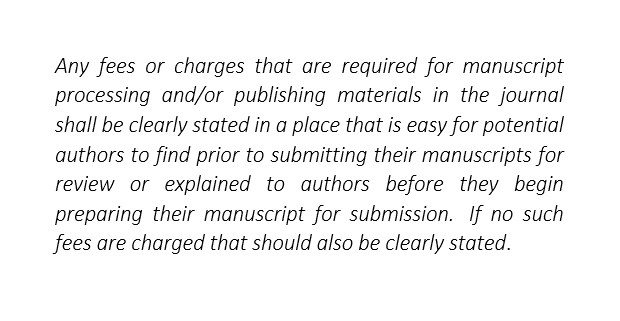Rosa María Cisneros-Kostic (also known as Rosamaria Cisneros or Rosa Cisneros) holds an academic position at a UK university. This thread raises concerns about her unwillingness to publicly name an academic journal that apparently engaged in unethical and unlawful conduct. /1
On 3 September, one of her posts came up on my timeline, in which she wrote that she was withdrawing an article from an academic journal because it reneged on an assurance (below). I am aware of Dr Cisneros’ work through my own work on equality and non-discrimination. /2 

I was concerned that she had experienced this treatment. She is an academic from the Roma community, a marginalised community in Europe. My recent work has focused on directly challenging apparent discrimination against GRT people. /3
I am also concerned, as a writer, editor and researcher, about unethical practices in academic publishing. My concern with ethics is longstanding. It includes co-production of the Statement of Principles of Ethical Research Practice for the Socio-Legal Studies Association. /4
I have also written extensively on law & ethics. I have consistently challenged unlawful conduct in academia, including through personally issuing legal proceedings against universities and, as a trade union representative, assisting academic colleagues in employment matters. /5
I have joined the increasing number of people writing about unethical practices in academic publishing. I name problematic publishers. I have also taught Contract Law, frequently using my knowledge to challenge, and informally assist others to challenge, unlawful behaviour. /6
So, I replied to Dr Cisneros that day: ‘Sorry to hear this. What's the name of the journal? It would be helpful for others to know. You might, subject to the nature of the agreement with the journal, also be entitled to compensation in Contract Law.’ /7
Dr Cisneros replied: ‘Hmm Good point. Tempted to name and shame but will pass. If an academic is keen to learn which Journal, I can share privately. Thanks for the support!’ /8
I responded later that day at 9.59pm: ‘I'm not in favour of shaming. I am concerned, however, to see public transparency and accountability regarding apparently unethical and potentially unlawful conduct in academic publishing. Why not name the journal publicly?’ /9
Dr Cisneros did not answer that question. She did, however, respond to a number of other replies to her initial post. /10
Her initial post received a number of replies, including these:
🔹‘Such journals are thuggish, predatory and anti-knowledge. Only concerned with the bottom line’
🔹‘[A]bsolutely appalling and unacceptable’
🔹‘Academic publishing is such a scam’. /11
🔹‘Such journals are thuggish, predatory and anti-knowledge. Only concerned with the bottom line’
🔹‘[A]bsolutely appalling and unacceptable’
🔹‘Academic publishing is such a scam’. /11
Clearly, the conduct of the journal was regarded by others as problematic. While a number of those replying expressed sympathy, none offered solidarity by standing with Dr Cisneros in seeking to hold the journal to account. /12
Dr Cisneros might have opted to publicly name the journal when first asked, holding the current editor(s) to account, and out of concern for others who might face similar problems. She did not do so. Dr Cisneros stated that anyone could DM her and she would ‘share privately’. /13
This is ethically problematic for reasons that I set out in this thread. Dr Cisneros might have answered the question why she would not name the journal publicly. She did not do so. This does not reflect well on Dr Cisneros. /14
In view of unethical publishing, the Committee on Publication Ethics (COPE) published Core Practices which it expects journals and publishers to follow; including this expectation: ‘Journals must take seriously allegations of misconduct pre-publication and post-publication.’ /15
Dr Cisneros will know or should know of COPE. She is an editor of The International Journal of Roma Studies. The journal is part of Hipatia Press Scientific Journals which states that they ‘adhere to the International Standards for editors and authors published by [COPE].’ /16
COPE’s Standards link to Core Practices, which, in turn, link to ‘Principles of Transparency and Best Practice in Scholarly Publishing’ (bit.ly/2ZJwODk). Principle 8, ‘Author fees’, states:
/17
/17

Dr Cisneros holds a research position at a publicly funded university. Taxpayers money flows into such universities to enable them to carry out their functions. There is a valid public interest, subject to academic freedom, in how public money supports research. /18
It is important to hold individuals and organisations in academia who engage in unethical and unlawful behaviour to account. One way to do so is to publicly name them. /19
Dr Cisneros’ decision not to publicly name the journal means that those who do not know of her post but who are interested in submission to the journal will likely not be able to find information about that journal’s apparently unethical and unlawful conduct. /20
It means that the journal may be under no, or less, pressure publicly to change its apparently unethical and unlawful conduct. /21
It means that academic freedom is undermined because an academic is unwilling to stand up to defend that freedom from apparent infringement through unethical and unlawful behaviour. It means that some may now have a diminished view of Dr Cisneros as an academic. /22
• • •
Missing some Tweet in this thread? You can try to
force a refresh





